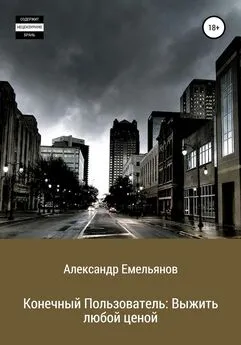Пользователь - o 3b3e7475144cf77c
- Название:o 3b3e7475144cf77c
- Автор:
- Жанр:
- Издательство:неизвестно
- Год:неизвестен
- ISBN:нет данных
- Рейтинг:
- Избранное:Добавить в избранное
-
Отзывы:
-
Ваша оценка:
Пользователь - o 3b3e7475144cf77c краткое содержание
o 3b3e7475144cf77c - читать онлайн бесплатно полную версию (весь текст целиком)
Интервал:
Закладка:
the city of Munich. Then, just at the end of one day, a friendly warder came and said: "Bitte,
kommen Sie, Herr Budd."
It would do no good to ask questions, for the warders didn't know. When you left a cell, you
said Ade, having no way to tell if you would come back. Some went to freedom, others to be
beaten insensible, others to Dachau or some other camp. Lanny was led downstairs to an office
where he found two young S.S. men, dapper and correct, awaiting him. He was pleased to
observe that they were not the same who had arrested him. They came up, and almost before
he realized what was happening, one had taken his wrist and snapped a handcuff onto it. The
other cuff was on the young Nazi's wrist, and Lanny knew it was useless to offer objections.
They led him out to a courtyard, where he saw his own car, with another uniformed S.S. man
in the driver's seat. The rear door was opened. "Bitte einsteigen."
"May I ask where I'm being taken?" he ventured.
"It is not permitted to talk," was the reply. He got in, and the car rolled out into the tree-lined
avenue, and into the city of Munich. They drove straight through, and down the valley of the
Isar, northeastward.
On a dark night the landscape becomes a mystery; the car lights illumine a far-stretching
road, but it is possible to imagine any sort of thing to the right and left. Unless you are doing
the driving, you will even become uncertain whether the car is going uphill or down. But there
were the stars in their appointed places, and so Lanny could know they were headed north.
Having driven over this route, he knew the signposts; and when it was Regensburg and they
were still speeding rapidly, he made a guess that he was being taken to Berlin.
"There's where I get my examination," he thought. He would have one more night to do his
thinking, and then he would confront that colossal power known as the Geheime Staats-Polizei,
more dark than any night, more to be dreaded than anything that night contained.
The prisoner had had plenty of sleep in the jail, so he used this time to choose his Ausrede,
his "alibi." But the more he tried, the worse his confusion became. They were bound to have
found out that he had drawn thirty thousand marks from the Hellstein bank in Munich; they
were bound to know that he had paid most of it to Hugo; they were bound to know that some
sort of effort had been made to take Freddi out of Dachau. All these spelled guilt on Lanny's part;
and the only course that seemed to hold hope was to be frank and naive; to laugh and say:
"Well, General Göring charged Johannes Robin his whole fortune to get out, and used me as
his agent, so naturally I thought that was the way it was done. When Hugo offered to do it for
only twenty-eight thousand marks, I thought I had a bargain."
In the early dawn, when nobody was about except the milkman and the machine-gun
detachments of the Berlin police, Lanny's car swept into the city, and in a workingclass
quarter which he took to be Moabit, drew up in front of a large brick building. He hadn't been
able to see the street signs, and nobody took the trouble to inform him. Was it the dreaded
Nazi barracks in Hedemannstrasse, about which the refugees talked with shudders? Was it the
notorious Columbus-Haus? Or perhaps the headquarters of the Feldpolizei, the most feared group
of all?
"Bitte aussteigen," said the leader. They had been perfectly polite, but hadn't spoken one
unnecessary word, either to him or to one another. They were machines; and if somewhere
inside them was a soul, they would have been deeply ashamed of it. They were trying to get
into the Reichswehr, and this was the way.
They went into the building. Once more they did not stop to "book" the prisoner, but
marched him with military steps along a corridor, and then down a flight of stone stairs into
a cellar. This time Lanny couldn't be mistaken; there was a smell of blood, and there were
cries somewhere in the distance. Once more he ventured a demand as to what he was being
held for, what was to be done to him? This time the young leader condescended to reply: "Sie
sind ein Schutzhäftling."
They were telling him that he was one of those hundred thousand persons, Germans and
foreigners, who were being held for their own good, to keep harm from being done to them.
"Aber," insisted Lanny, with his best society manner, "I haven't asked to be a Schutzhäftling —
I'm perfectly willing to take my chances outside." If any of them had a sense of humor, this was
not the place to show it. There was a row of steel doors, and one was opened. For the first time
since these men had confronted Lanny in the Munich jail the handcuff was taken from his
wrist, and he was pushed into a "black cell" and heard the door clang behind him.
VI
The same story as at Stadelheim; only it was more serious now, because that had been an
accident, whereas this was deliberate, this was after two weeks of investigation. Impossible to
doubt that his plight was as serious as could be. Fear took complete possession of him, and
turned his bones to some sort of pulp. Putting his ear to the opening in the door, he could have
no doubt that he heard screaming and crying; putting his nose to the opening, he made sure
that he smelled that odor which he had heretofore associated with slaughter-houses. He was in
one of those dreadful places about which he had been reading and hearing, where the Nazis
systematically broke the bodies and souls of men—yes, and of women, too. In the Brown Book
he had seen a photograph of the naked rear of an elderly stout woman, a city councilor of the
Social-Democratic party, from her shoulders to her knees one mass of stripes from a scientific
beating.
They weren't going to trouble to question him, or give him any chance to tell his story. They
were taking it for granted that he would lie, and so they would punish him first, and then he
would be more apt to tell the truth. Or were they just meaning to frighten him? To put him
where he could hear the sounds and smell the smells, and see if that would "soften him up"? It
had that effect; he decided that it would be futile to try to conceal anything, to tell a single lie.
He saw his whole past lying like an open book before some Kriminalkommissar, and it was a
very bad past indeed from the Nazi point of view; every bit as bad as that which had brought
Freddi Robin some fourteen months of torture.
Whatever it was, it was coming now. Steps in the corridor, and they stopped in front of his
door; the door was opened, and there were two S.S. men. New ones—they had an unlimited
supply, and all with the same set faces, all with the same code of Blut und Eisen. Black shirts,
black trousers, shiny black boots, and in their belts an automatic and a hard rubber truncheon
—an unlimited supply of these, also, it appeared.
They took him by the arms and led him down the corridor. Their whole manner, the whole
atmosphere, told him that his time had come. No use to resist; at least not physically; they
would drag him, and would make his punishment worse. He was conscious of a sudden surge
of anger; he loathed these subhuman creatures, and still more he loathed the hellish system
which had made them. He would walk straight, in spite of his trembling knees; he would hold
himself erect, and not give them the satisfaction of seeing him weaken. He dug his nails into
the palms of his hands, he gritted his teeth, and walked to whatever was beyond that door at
the end of the corridor.
VII
The sounds had died away as Lanny came nearer, and when the door was opened he heard
only low moans. Two men were in the act of leading a beaten man through a doorway at the
far side of the room. In the semi-darkness he saw only the dim forms, and saw one thrown into
the room beyond. Apparently there were many people there, victims of the torturing; moans
and cries came as from a section of Dante's inferno; the sounds made a sort of basso continuo to
all the infernal events which Lanny witnessed in that chamber of horrors.
A room about fifteen feet square, with a concrete floor and walls of stone; no windows, and
no light except half a dozen candles; only one article of furniture, a heavy wooden bench about
eight feet long and two feet broad, in the middle of the room. From end to end the bench was
smeared and dripping with blood, and there was blood all over the floor, and a stench of dried
blood, most sickening. Also there was the pungent odor of human sweat, strong, ammoniacal;
there were four Nazis standing near the bench, stripped to the waist, and evidently they had
been working hard and fast, for their smooth bodies shone with sweat and grease, even in the
feeble light. Several other Nazis stood by, and one man in civilian clothes, wearing spectacles.
Lanny had read all about this; every anti-Nazi had learned it by heart during the past year
and a half. He took it in at a glance, even to the flexible thin steel rods with handles, made for
the purpose of inflicting as much pain as possible and doing as little permanent damage. If you
did too much damage you lost the pleasure of inflicting more pain—and also you might lose
important evidence. Lanny had read about it, heard about it, brooded over it, wondered how he
would take it—and now here it was, here he was going to find out.
What happened was that a wave of fury swept over him; rage at these scientifically-trained
devils, drowning out all other emotion whatsoever. He hated them so that he lost all thought
about himself, he forgot all fear and the possibility of pain. They wanted to break him; all
right, he would show them that he was as strong as they; he would deny them the pleasure of
seeing him weaken, of hearing him cry out. He had read that the American Indians had made
it a matter of pride never to groan under torture. All right, what an American Indian could do,
any American could do; it was something in the climate, in the soil. Lanny's father had
hammered that pride into him in boyhood, and Bub Smith and Jerry had helped. Lanny
resolved that the Nazis could kill him, but they wouldn't get one word out of him, not one
sound. Neither now nor later. Go to hell, and stay there!
It was hot in this underground hole, and perhaps that was why the sweat gathered on Lanny's
forehead and ran down into his eyes. But he didn't wipe it away; that might be taken for a
gesture of fright or agitation; he preferred to stand rigid, like a soldier, as he had seen the Nazis
do. He realized now what they meant. All right, he would learn their technique; he would
become a fanatic, as they. Not a muscle must move; his face must be hard, turned to stone with
defiance. It could be done. He had told himself all his life that he was soft; he had been
dissatisfied with himself in a hundred ways. Here was where he would reform himself.
He was expecting to be told to strip, and he was ready to do it. His muscles were aching to
begin. But no, apparently they knew that; their science had discovered this very reaction, and
knew a subtler form of torture. They would keep him waiting a while, until his mood of rage
Читать дальшеИнтервал:
Закладка:




